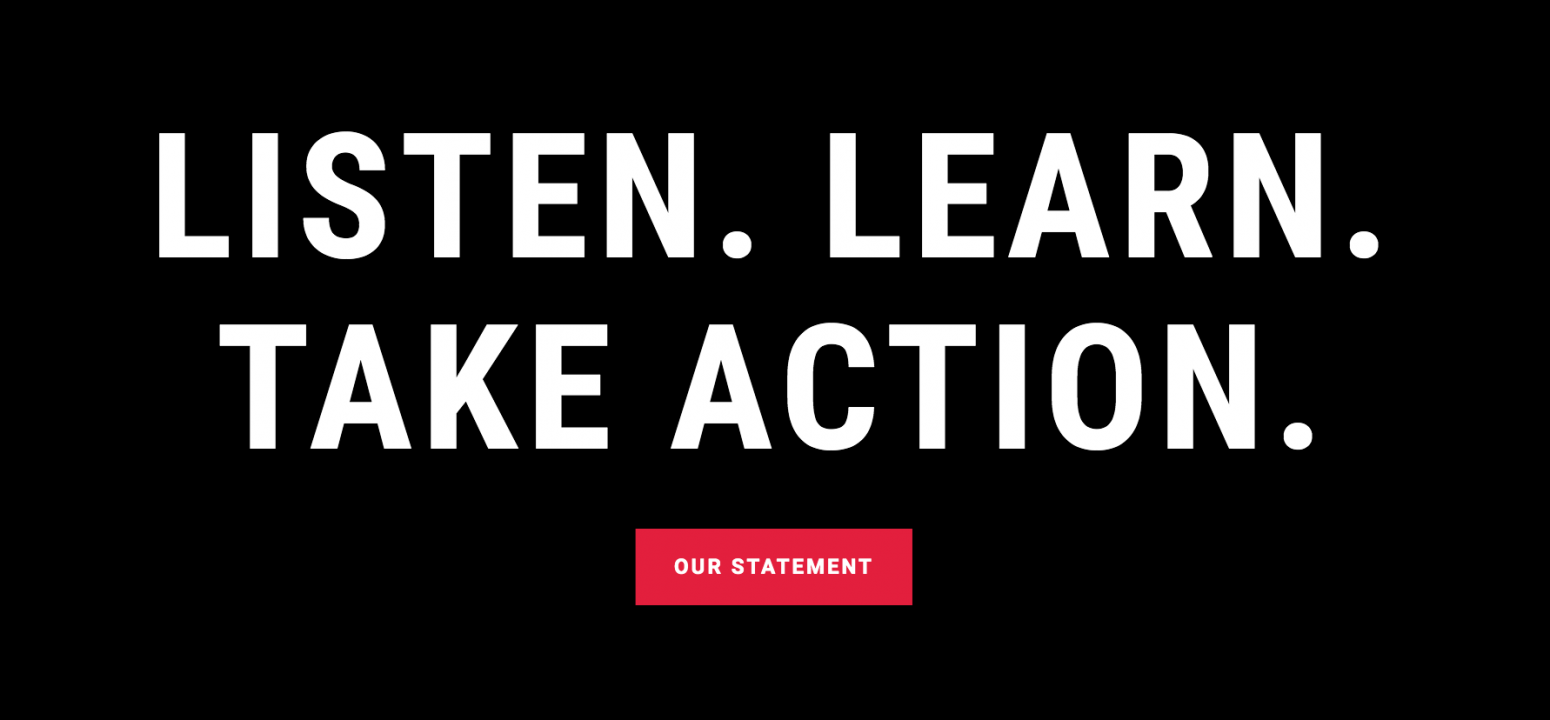Amid the current conversation about what the cycling industry can do to improve diversity and the inclusion of people of colour, many brands are looking at their current policies, sponsored athlete roster, and advertising materials with a view to making changes. Some, like Cotic, who announced their firm intention to address the issue, are still figuring out exactly how they’ll do it. SRAM has taken an immediate step of committing in excess of $100,000 to supporting people of colour in cycling.
The statement below is available by the front page of the SRAM website. If you land on the SRAM page, it is the first thing you will see – no pictures of bikes or product, just the statement ‘Listen. Learn. Take Action’. In addition, all the SRAM subsidiary Instagram feeds shared the news. It’s a strong move, and since SRAM has a track record of supporting women’s cycling and advocacy projects, as well as being a key part of World Bicycle Relief, we expect to see that this statement intent will be followed through.
Statement from Ken Lousberg, CEO, and the SRAM Senior Management Team
WHAT WE HAVE LEARNED AND WHAT WE ARE DOING
SRAM is deeply saddened and troubled by the events that took place around George Floyd’s death in Minneapolis on May 25, 2020, which we see as the latest manifestation of a larger societal issue. At SRAM, we care about people of all walks of life and we care about making the best possible products for cyclists. Our purpose statement is “We believe in the power of bicycles and expanding the potential of cycling. We create and manufacture components that inspire cyclists.” While product development and manufacturing have always been part of our DNA, we have more recently increased our efforts to expand the potential of cycling, particularly for women and people of color.
SRAM believes in equality for all. We recognize that in our business and in our communities, we can do more to understand and support each other. In light of our efforts to build a more inclusive cycling community, we feel a responsibility to add more to this effort.
For us at SRAM, this is a people issue. It means standing alongside our team members, athletes, and local communities. This is about having a kind heart, and believing that we must treat each other equally, regardless of our differences. We are a bike company made up of people that care about people. Our brands have a worldwide audience and so we feel we have a responsibility to support those voices that are not being heard on this matter that means so much to us.
SRAM is committed to engaging with our team and members of our community to listen, learn and to act, as both students and as leaders, in achieving equality for people of color. We want to support those who have been disenfranchised and discriminated against, including our Black SRAMmies, athletes, and ambassadors. We support them, want to do better, and do our part to stop it.
OUR CURRENT ACTION PLAN
We feel that it is crucial for any company or individual to back statements with meaningful actions and change. Over the last few years, we have increased our internal diversity, inclusion, and equity work at SRAM. Even so, we realize we must do much more. Here are ways that we will take immediate action against racial inequality, in cycling and beyond.
- We will expand our partnerships and better support Black athletes and ambassadors, even if they don’t ride our components. We will use our platform and resources to amplify the work these athletes and ambassadors are doing.
- We will demonstrate that representation matters and ensure Black riders are part of our communications and outreach.
- We will continue and improve our internal working groups, mentorship opportunities, and discussions to help us better understand racial inequality and be able to take actions that change practices, systems and structures that lead to inequitable experiences and outcomes.
- While we are committed to listening and continual learning, we also will increase our financial commitment to support people of color in cycling in excess of $100,000 USD over the next 12 months. Doing better is ongoing work. We won’t be finished next week, or next year. We’re in it for the long run.
- We acknowledge we still have a long way to go. We will: Listen. Learn. Take Action.
Comments (4)
Leave Reply
Post Comment



This is really impressive especially taking in to account the horrible messages and comments on their BLM statement earlier in the week. The strength to resist that negativity is good to see.
Good to see, hopefully it will be followed by others. One thing Singletrackworld could consider given your reach as biggest site of your kind in the UK is hosting some regional forum rides under an inclusivity banner. There must be lurkers as well as posters who would be interested in meeting up with other like minded riders in a diverse mixed group, expand social circles and make new friends. If successful, you could turn it into an annual event.
@kahl, that’s a good start. If the industry is serious about engaging with black and minority ethnic communities, it might be helpful to support urban bike parks and inner city pump tracks etc. For various historic socio-economic reasons (for brevity, normally labelled as white privilege) there tend to be more minorities in the cities, where there is little access to any mountain biking, and mountain (and road) biking tends to be concentrated where there are very few minorities. (I’m aware I’m heavily over generalising) So simply supporting events in “traditional” locations where the “target audience” doesn’t exist might not be productive.
Wholeheartedly agree with comments about supporting urban MTB tracks.
Team up with Shefield’s awesome Peaty for example. ♂️♀️